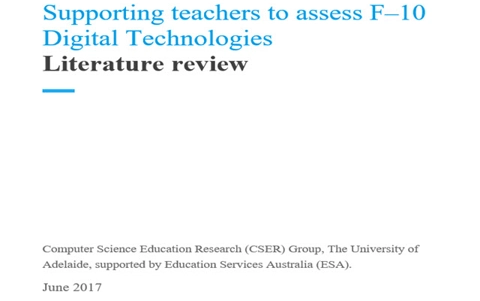Literature review: Supporting teachers to assess F–10 Digital Technologies
This paper provides some examples and approaches to assessment for Digital Technologies, linking to resources and tools that teachers may adopt in the classroom or utilise in the design of assessment activities. The report provides advice about designing assessment activities and assessment approaches and strategies that includes programming assignments, artefact analysis,cognitive interviewing (think aloud), test questions, problem-based puzzle projects and rubrics.
Additional details
| Content type | Assessment advice |
|---|---|
| Format | Document |
| Keywords | Assessment tasks, Summative, Formative, Strategies, Approaches, Computational thinking, Reporting, Rubrics, Assessment tasks, Assessment |
| Organisation | Computer Science Education Research (CSER) Group, The University of Adelaide |
| Copyright | Education Services Australia, unless otherwise indicated. Unless otherwise indicated, this material may be used in accordance with the Creative Commons Attribution 4.0 International (CC BY 4.0) licence. |
Related resources
-
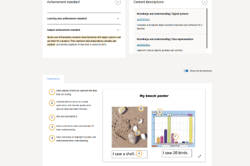
Work Samples
This site provides access to annotated work samples in accordance with the Australian curriculum for years F-10.
-
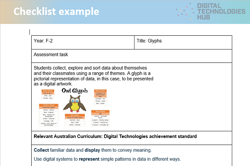
Checklist example
This checklist template example is focused on a task where students collect, explore and sort data about themselves and their classmates using a range of themes.
-
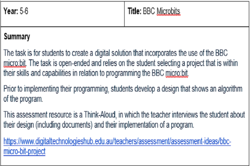
Think aloud example
This assessment resource is a Think-Aloud, in which the teacher interviews the student about their design (including documents) and their implementation of a program.
-
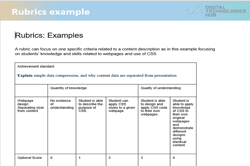
Rubric example
This rubric can focus on students’ knowledge and skills related to webpages and use of CSS.
-
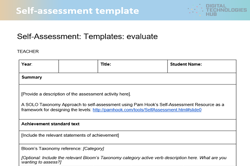
Self-assessment template
This template can be used for Digital Technologies related tasks that enable students to self-assess.
-
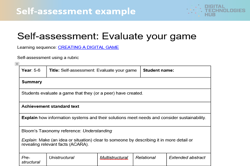
Self-assessment example
This example of a self-assessment uses a rubric to assess learning about creating a digital game.
-
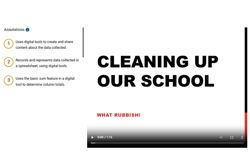
WS02 - Clean our school
Use this ACARA worksample to assess how Years 3-4 students process and represent data for different purposes as they use digital tools to create and share content.
-
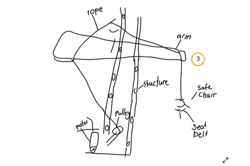
WS01 - Digital project: Rescuing Rapunzel
Use this ACARA worksample to assess how Years 3-4 students create simple digital solutions and use provided design criteria to check if solutions meet user needs.
